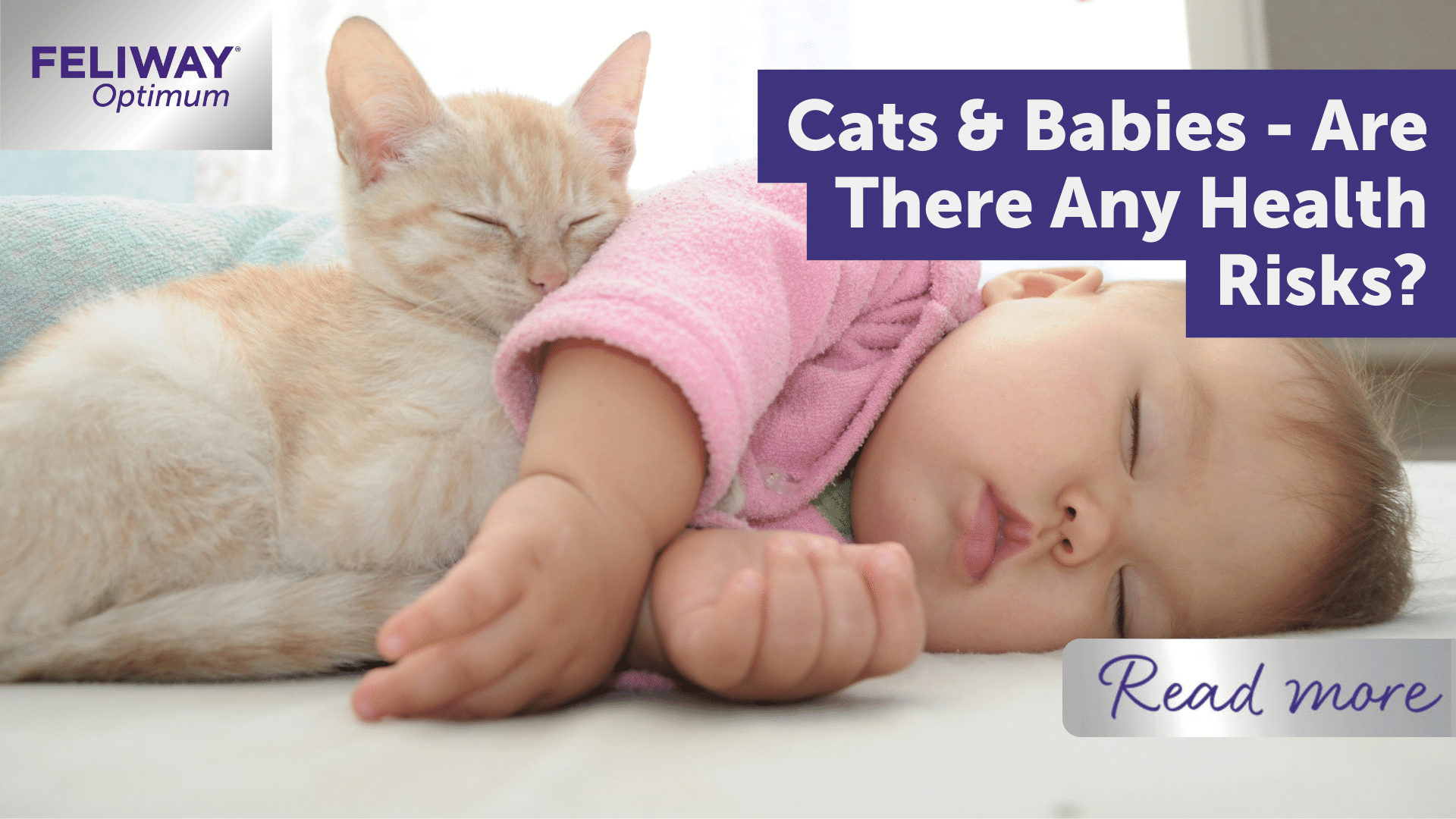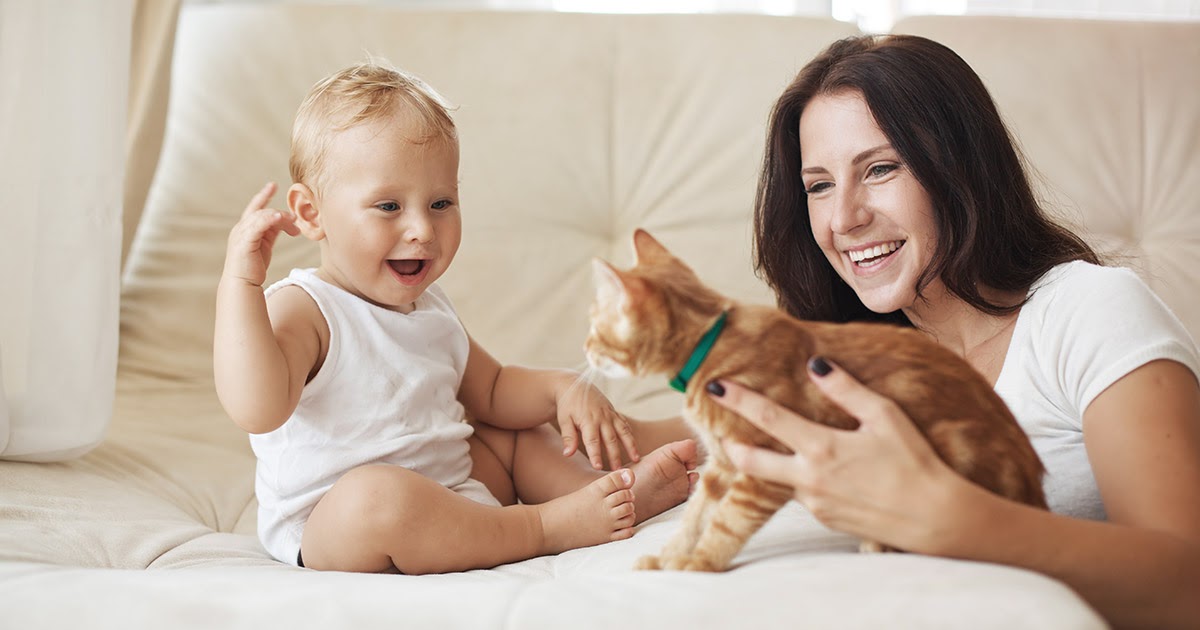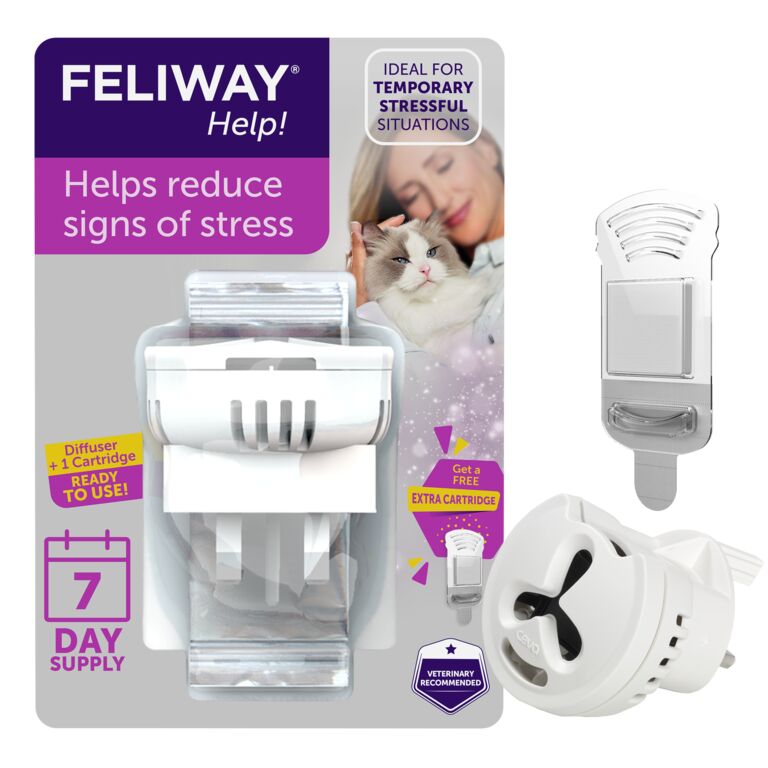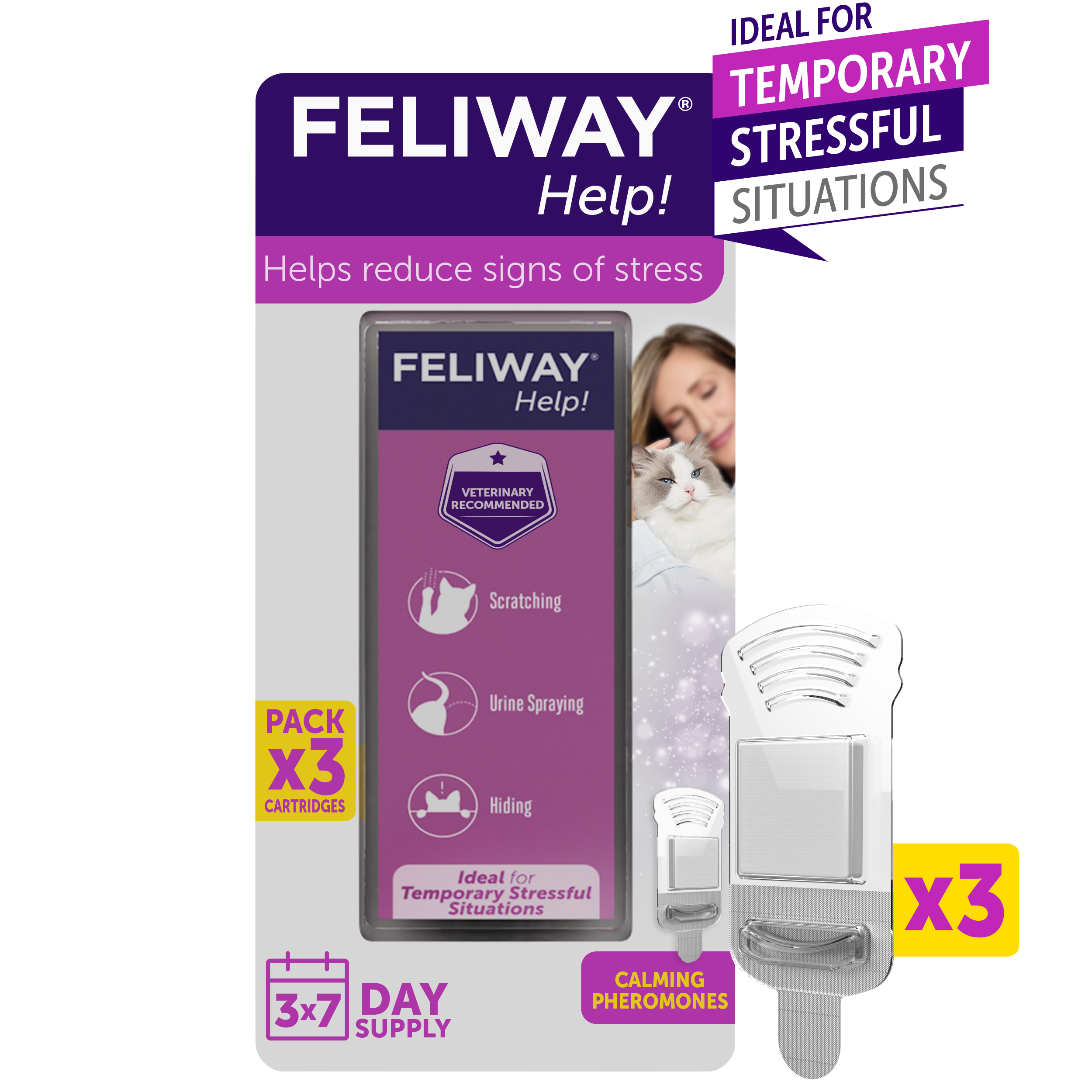
Cats and Babies - Are There Any Health Risks To Be Aware Of
Many people feel their family wouldn't be complete without having pets around the home. Cats and dogs provide companionship, comfort, exercise and lots of emotional support! Most often, these joys outweigh the concerns of any health risks between humans and any four legged friends.
That's not to say that you should dismiss any possible risks - it's important to be always be aware - for the sake of your family and for your pet!
And if you're expecting a new human arrival in the family soon,
So as you prepare for your new baby's arrival with cots, blankets, and everything else, it's also important to consider health, and make sure everyone in the household (including your pet) is as healthy and happy as possible beforehand.
It's also the perfect time to consider other lifestyle adjustment, to make sure your cat is as prepared as possible for a new arrival! Small changes can be made that will allow cats and babies to live together in health and harmony while still maintaining that special bond you have with your feline friend.
Prepare Before the Baby Arrives
Amidst all the excitement of the imminent new addition to your family, good preparation will help avoid any health risk concerns:
- Help your cat adjust. As soon as you know you are going to have a new human addition to the family, start to prepare your cat for the new arrival. This should be a gradual process - don't forget cats like routine so introduce new baby related items slowly and let your furry friend get used to their smells and presence a little at a time. This will help your cat accept the new family member more quickly, and be less inquisitive.
- Set up a 'baby only' area. If you are worried about cross infection between your cat and your new born baby, set up an area or a room where your cat is not allowed. A baby's immune system takes 2-3 months to develop enough to be able to fight off any viruses, so you may want to consider a 'feline-free' room for a while until your baby's immune system is better able to cope.
- Check your cat is in the best of health. Make sure your pussycat is up to date with all vaccinations, worm and flea treatment, and is not carrying an infection that may affect a newborn baby. Your vet will be happy to give your cat the once-over to allay any concerns.
-
Share your cat time. If your cat relies on you alone to play, feed and keep their litter tray clean, encourage them to get close to another family member too before the baby arrives. Once the baby arrives your time will be limited, so if your cat can build up a bond with other people in the household, they will not notice that your time is taken elsewhere.
What common concerns do new parents have around cats?
As mentioned above, with the right preparation, there's no reason for concern when bringing a newborn baby into a household with a cat.
However, some considerations to be aware of include:
- Some children are allergic to cats. All cats produce allergens; as they groom themselves, allergens from their saliva are deposited on their hair which can then be spread around the house where the cat wanders. If your baby develops frequent sneezing, coughing, itchy eyes, congestion and a runny or stuffy nose, these symptoms could indeed indicate that they are allergic to your cat. However, the same symptoms can also be caused by a cold. As a general rule, a cold should clear up in a few days. Always get your doctor to check out the baby, but be sure to let them know that there is a cat in the house so they can advise you accordingly.
- General hygiene. Cats are very clean creatures, always washing and preening themselves, but they can still carry infectious diseases. Get information from your doctor and your vet about cat-borne organisms that can harm unborn babies and take appropriate precautions. The most common, Toxoplasmosis, is an infection that's usually harmless but can cause problems in some people, particularly pregnant women and people with weakened immune systems. Practicing good hygiene is always wise however, so make sure you.
- Don't handle soiled cat litter. Always wear gloves when changing the litter tray - or better still, get someone else (who may not handle the baby as often as you) to change the litter tray instead. Remember to clean and disinfect the litter tray daily to minimise any infection. Keep the litter tray well away from the baby's room.
- Always wash your hands after handling your cat and before picking up your baby.
- Clean your worktops before preparing food - try as you may, it will be almost impossible to keep your cat off all work surfaces! So it's always best practice to assume that the cat has wandered over the surface and clean it each time before you use it.
- A cat bite or scratch that does not heal or worsens over time
- Painful or swollen lymph glands. These are often under the armpits or on the side of the neck.
- Flu-like symptoms, including headache, tiredness, decreased appetite, fatigue, joint pain, or fever
- Body rash
- Can my baby catch a feline disease? It is unlikely that your baby will catch a harmful parasite or disease from your cat. However, try and avoid physical contact between cat and baby particularly when the baby is newborn. In an extreme situation, if a cat inadvertently scratches a baby this could lead to a rare condition called Cat Scratch disease, a bacterial infection that can be passed from a cat bite or scratch to a human. The bacteria seems to be transferred between cats by fleas - so flea treatment is important! Make sure your pet is flea-free and treated before the baby arrives and there should be no cause for concern.
- Can my baby and cat play together? Babies and young children love cuddly toys and they will particularly love one that reacts, plays and purrs! However, if a small child or baby gets a little over excited and squeezes the cat or grabs its tail, your feline friend may feel the need to defend themselves! This may result in a scratch or bite. So make sure you supervise all play and always check that your cat has a quick escape route.
- Can my baby and cat sleep together? Always keep your cat out of the baby's bed or cot, either closing the door or using a net, for example, to prevent the cat snuggling next to your baby. Cats love to find warm places to sleep and this could be near a baby's face. This is very dangerous as it could interfere with your baby's breathing.
If your child does get scratched, always wash the area thoroughly and keep an eye on it; and if any of the following symptoms occur, consult your doctor:

BEING AWARE IS THE BEST APPROACH
Being aware, taking common sense precautions and connecting with a doctor if necessary can all help protect your baby. Most cats are very adaptable and after meeting your baby they will soon adjust and accept any new noises and smells that accompany the new arrival.
If, however, your cat seems a little stressed at the new arrival, try a FELIWAY Optimum Diffuser. FELIWAY helps to relieve stress and keep cats calm in unfamiliar situations.
{{cta('7f864583-444a-4927-bb65-876793e0ce6e')}}




































